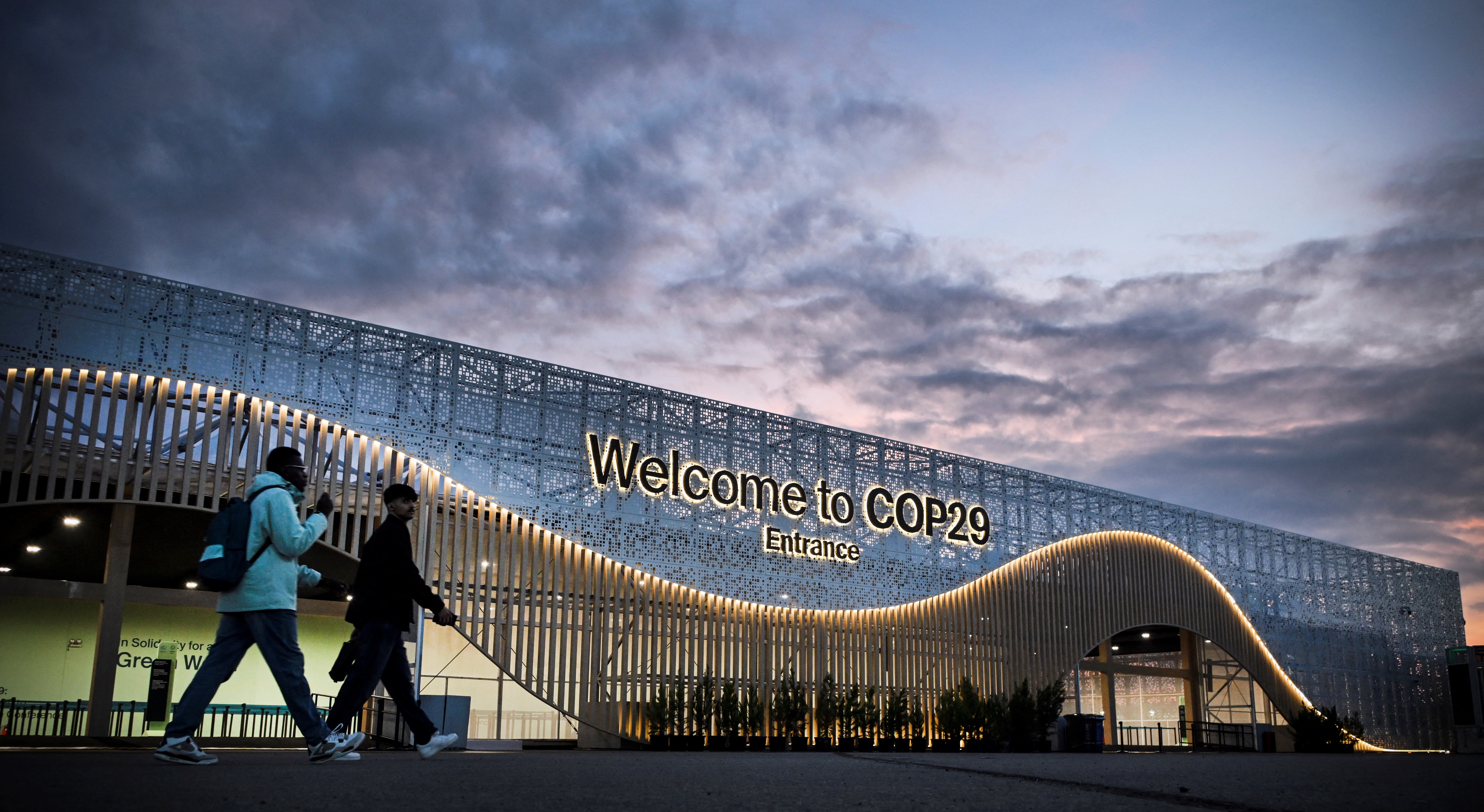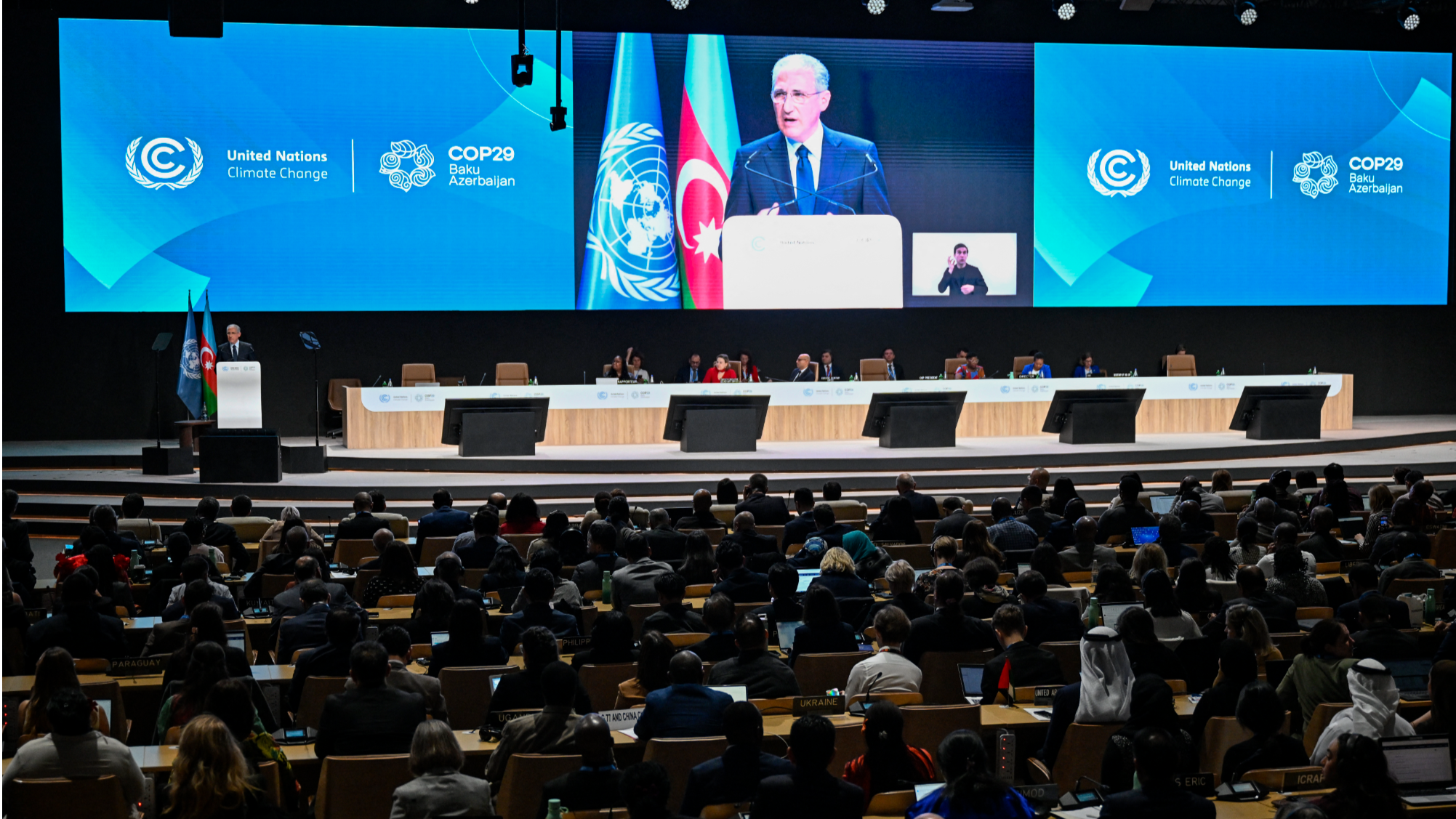
Nearly 200 nations at United Nations talks in Azerbaijan are haggling over a climate finance deal for developing economies, with negotiators trying to find consensus on annual goals ranging from $200 billion to $1.3 trillion.
The wide gap in those potential targets is just one of many unsettled issues as the COP29 summit in Baku enters its final days.
The Azeri presidency is expected to release a draft of the deal in the early hours of Thursday morning. It will kick off fresh rounds of negotiations that can last all night, as officials attempt to bridge a deep divide over the size and type of finance on offer, including how much should take the form of grants instead of loans.
The fight for money has played a central role in COP negotiations for more than a decade. In 2009, wealthy nations committed to a goal of jointly mobilizing $100 billion annually by 2020 to help the developing world build lower-carbon economies and prepare for the impacts of global warming. Developed countries missed their target, only delivering on the fully promised amount for the first time in 2022.
ALSO READ: COP29 climate talks urged to find $1 trillion a year for poorer countries
Negotiators in Baku are now on the hook to replace the current funding agreement, which expires next year, with what’s called a “new collective quantified goal” on climate finance.
Cash-strapped developed countries have been telegraphing over recent weeks that a large part of any finance promised through these negotiations will need to come from sources out of their direct control. That includes multilateral development banks and the private sector through loans and other “innovative” finance structures.
There has been mounting frustration among some developing nations that say they need trillions of dollars to transition their economies, but if the support comes mostly through market-rate loans or other barely discounted finance it will only deepen unsustainable debt burdens.
“The NCQG may become — and it’s looking like — a high prescription of unsustainable debt,” said Michai Robertson, climate finance negotiator for the Alliance of Small Island States.
In addition to development banks and private finance, the European Union and the US have been keen to expand the base of donors with more countries’ financial contributions counting toward the pledge.

Meanwhile, new finance mechanisms such as carbon markets could be a source of climate cash. Negotiators secured a breakthrough on day one of the COP29 climate summit by agreeing on rules for a United Nations-administered global carbon market. The rules, dubbed “Article 6.4” after the initial provision in the landmark 2015 Paris Agreement, stipulate how countries should trade carbon credits through a UN-operated marketplace.
ALSO READ: COP29: Development bank funding pledge gives summit early boost
The Glasgow Financial Alliance for Net Zero, a coalition of banks and other financial institutions, said the private sector would also be able to step up and provide $1 trillion-per-year to emerging market developing countries by 2030.
“We firmly believe it is possible,” the group said in a letter to COP29 President Mukhtar Babayev on Wednesday.
All of these new finance streams could be enough to seal a big deal at COP29, according to Eamon Ryan, Ireland’s environment minister.
The “accounting will probably be the trick here — if you add up all those numbers then it’s not impossible” to reach $1.3 trillion, he said in an interview on the sidelines of the talks.
Still, developing nations have warned a trillion-dollar headline figure could be undermined by “vague” sources of financing, including private-sector investment and other offerings with standard interest rates attached. Robertson warned of a final number that relies on “sleight of hand accounting.”
READ MORE: COP29: Pay up or face climate-led disaster for humanity, warns UN chief
At the climate talks in Baku there has also been a separate tussle over whether to reaffirm COP28’s historic pledge to transition away from fossil fuels. European and US negotiators see restating and implementing commitments agreed last year, including a boost in efficiency and renewable energy deployment, as essential to keeping progress on mitigation targets.
Bolivia’s representative at the talks, Diego Balanza, speaking on behalf of the coalition of like-minded developing countries, said there is a risk that mitigation pledges will distract negotiators — and added he’s worried about rumors that rich nations may only be prepared to offer $200 billion a year from their own coffers.
There is a “receding hope of getting an ambitious” finance commitment, he said. “Instead, all we hear is mitigation, mitigation and more mitigation.”


